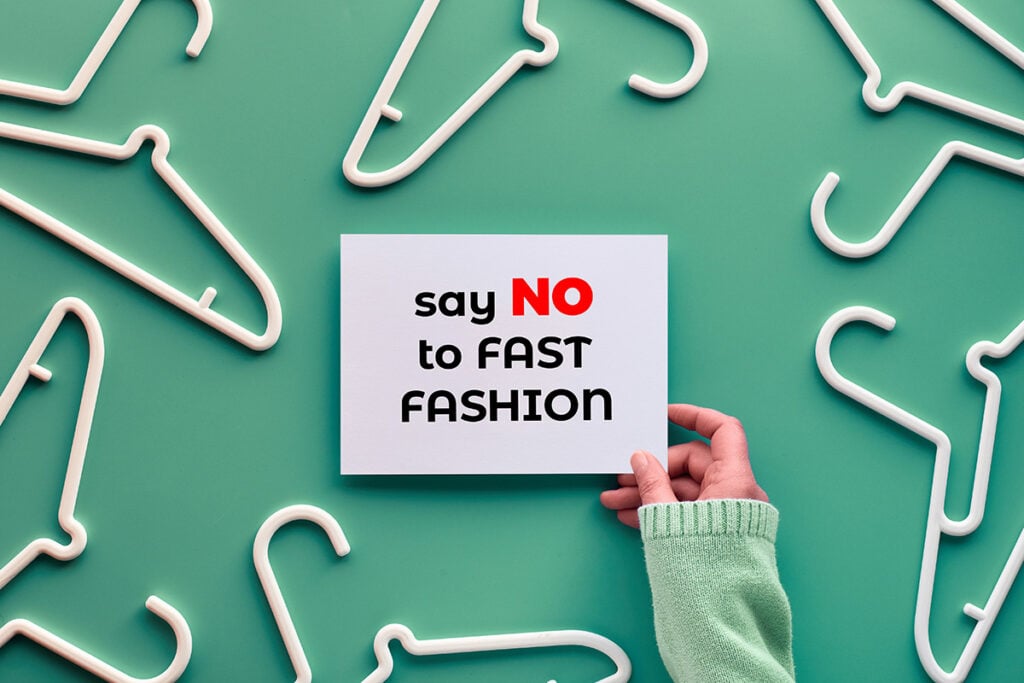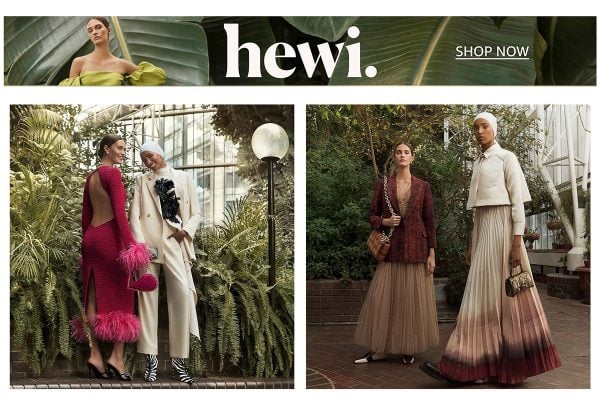Vestiaire Collective have banned a second wave of fast fashion brands from its platform. This marks the second year in a three-year rollout to ban all fast fashion from Vestiaire Collective’s website.
Following last year’s initial announcement, Vestiaire Collective saw 70% of members impacted by the ban come back to the platform to shop for better quality items and invest in second-hand. Furthering their commitment to create a more circular economy, Vestiaire Collective worked with a committee of nine fashion and sustainability experts to create a clear definition of fast fashion and leverage this framework to ban industry giants from its website.
Banning more fast fashion from Vestiaire Collective’s website will they say spark debate, however, with the climate crisis accelerating and ninety-two million tons of textile waste thrown away every year, they add that is a necessary step to reduce fashion’s environmental and social impact.
As part of the company’s mission to change the way people consume, Vestiaire Collective will utilize the platform to bring awareness to issues of textile waste and fashion overconsumption, as well as encourage other key fashion players to join the mission to change the industry. After a year of research and planning, Vestiaire Collective say that they have ‘proudly’ banned a list of 30 brands including: Abercrombie & Fitch, Gap, H&M, Mango, Uniqlo, Urban Outfitters, and Zara among others.
Vestiaire Collective define Fast Fashion
Vestiaire Collective gathered key industry experts to help build a framework defining fast fashion based on the five criteria fueling overproduction and overconsumption:
- Low price point: estimated average price point, also considering the repairability component
- Intense renewal rate: the estimated number of collections or number of new items drops per year
- Wide product range size: the number of items available at a given moment
- Speed to market: the production cycle time, from designing phase to finished goods in store
- Strong promotion intensity: the frequency and intensity of sale promotions
The decision to ban fast fashion was made to support Vestiaire Collective’s long time work to promote alternatives to the dominant model of fashion. Fast fashion brands contribute to excessive production and consumption, resulting in devastating social and environmental consequences in the Global South. It is our duty to act and lead the way for other industry players to join us in this movement, and together we can have an impact.
– Dounia Wone, Chief Impact Officer, Vestiaire Collective









